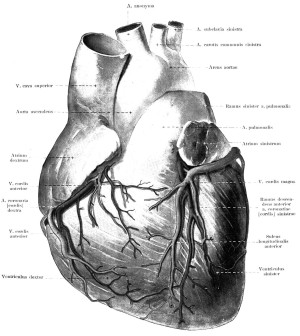- Are You Making This Expensive Thermostat Error This Winter?
- Recognizing the Signs of Hypothyroidism
- 10 Strategies to Overcome Insomnia
- Could Artificial Sweeteners Be Aging the Brain Faster?
- Techniques for Soothing Your Nervous System
- Does the Water in Your House Smell Funny? Here’s Why
- Can a Daily Dose of Apple Cider Vinegar Actually Aid Weight Loss?
- 6 Health Beverages That Can Actually Spike Your Blood Sugar
- Treatment Options for Social Anxiety Disorder
- Understanding the Connection Between Anxiety and Depression
Is Healthy Obesity a Myth?


Can someone be obese and healthy? A new study and several experts say no.
An obese person who has normal blood pressure, normal cholesterol and normal blood sugar levels is still at risk for heart disease, Korean researchers report in the April 30 online edition of the Journal of the American College of Cardiology.
In the study of more than 14,000 men and women, aged 30 to 59, those who were obese had more plaque buildup in their arteries, putting them at greater risk for heart disease and stroke than people of normal weight, the researchers found.
“People have been trying to work out whether there is a group of people that are obese and healthy,” said Dr. Rishi Puri, medical director of the atherosclerosis imaging core laboratory at the Cleveland Clinic and author of an accompanying journal editorial.
Puri noted that even if an obese person has normal blood pressure, cholesterol and blood sugar levels, those measures are likely to change over time and become abnormal, putting the patient at risk for heart disease, stroke and diabetes.
He also questioned the need, both in terms of research and patient care, of trying to define healthy obesity. “What are we trying to achieve? How does this help society?” he asked.
“We have an enormous challenge at a public health and individual level in dealing with obesity-related disorders. Being obese doesn’t just affect the heart. Being obese means you’re more likely to have joint disease, psychiatric disorders and cancers,” Puri said.
He added that, over the next couple of decades, obesity and its consequences will be driving health care costs.
“Even if we find that these particular obese patients don’t have a higher risk of heart disease in the short-term, what are the many other things obesity does to your body?” Puri said. “Are we going to ignore that?”
For the study, a team led by Dr. Yoosoo Chang, a professor at Kangbuk Samsung Hospital Total Healthcare Center, Center for Cohort Studies, in Seoul, scanned the hearts of 14,828 people who had no apparent risk factors for heart disease.
The researchers looked for buildup of calcium plaque in the heart’s arteries, which is an early sign of heart disease. Calcium plaque is linked to atherosclerosis, which is a stiffening and hardening of the arteries.
The investigators found that the obese people had a higher prevalence of atherosclerosis of the heart arteries than the people of normal weight. If atherosclerosis is not managed, it can lead to heart attack and sudden cardiac death, among other heart conditions, the researchers noted.
“Obese individuals who are considered ‘healthy’ because they don’t currently have heart disease risk factors should not be assumed healthy by their doctors,” Chang said in a statement.
“Our research shows that the presence of obesity is enough to increase a person’s risk of future heart disease and that the disease may already be starting to form in their body. It’s important that these people learn this while they still have time to change their diet and exercise habits to prevent a future cardiovascular event,” Chang said.
Dr. David Katz, director of the Yale University Prevention Research Center, said these findings are not surprising and expects that the same results would be found among obese Americans.
“There has long been debate about the relative importance to health of fitness versus fatness. The argument has been made that if one is fit, fatness may not be a significant health concern,” he said.
While fat and fit is better than fat and unfit, this study adds to a growing body of evidence that challenges that assertion. “Excess body fat can increase inflammation, one of the key factors contributing to heart disease, and other chronic diseases as well,” Katz said.
The good news about fitness and fatness is that the same strategies that help people stay fit are the ones that help them lose weight, he said. “Eating well and being active remain the best medicine for both losing excess weight, and staying healthy,” Katz noted.
More information
Visit the U.S. National Library of Medicine for more on obesity.
Source: HealthDay
Copyright © 2026 HealthDay. All rights reserved.










